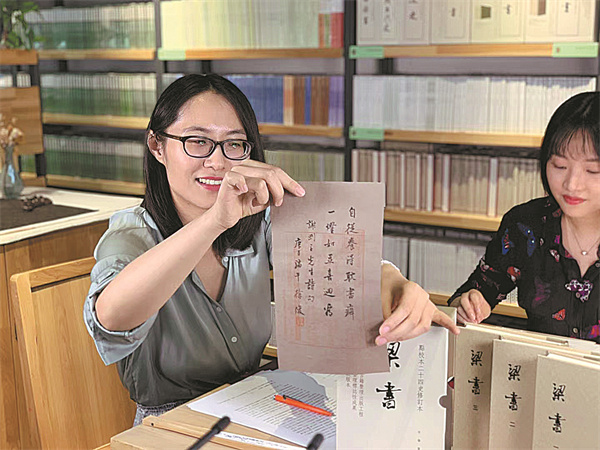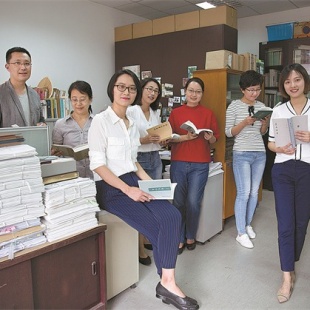Making page-turners


The next steps involve cross-referencing the draft using multiple sources, determining its academic value, checking if it is in line with the modern style and norms of publication and finally, coming up with revision suggestions for the author.
Interactions with the author can be a protracted process. "Sometimes, discussions about a punctuation mark can go on forever," Hu says. Once all these preliminary steps are done, further editing, reviewing and publishing can begin.
Years of experience have given Hu the comprehensive ability to deal with historical books. She is able to decide which ancient texts to publish. She discusses collating plans and gets projects approved. She edits submitted drafts, and keeps an eye on both the publishing process and the publicity thereafter.
"The standards for choosing an ancient classic can be flexible. If we notice there is enough room to improve the published edition of an ancient text or an author has made a breakthrough in studying such a book, these will be chosen," she explains.
A penchant for knowing the past prompted Hu to study ancient history for seven years, and get her bachelor's and master's degrees from Peking University. During her student years, she built a solid foundation for herself in terms of learning how to make ancient texts more comprehensible.
"The science behind editing riveted me to ancient classics while bibliography allowed me to understand the depth of Chinese culture and the significance of such works," she says.





































